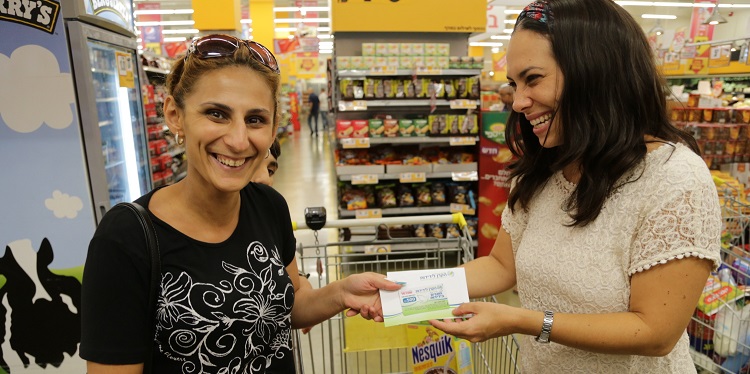Love by Giving
The Fellowship | February 3, 2019

“‘Do not seek revenge or bear a grudge against anyone among your people, but love your neighbor as yourself. I am the LORD.'” — Leviticus 19:18
In Hebrew, the word for love is ahava, which comes from the root word, hav, “to give.” In Judaism, to love is to give. Giving to others forms the connection that enables us to love one another. Join us this month, as we offer a devotional series exploring the Jewish perspective on love.
A story is told about a rabbi who wanted to teach his students about love. That particular day, the school was serving fish for lunch. The rabbi approached a group of students who were enjoying their lunch and asked, “Do you love the fish?” “I love it!” came one boy’s enthusiastic reply. “No you don’t!” boomed the rabbi’s voice. “If you really loved the fish you wouldn’t be eating it.”
In today’s verse, we come across one of the most fundamental axioms of the Bible: “Love your neighbor as yourself.” This ideal was deemed so important that when the saintly Rabbi Akiva (first century) was asked to relay the entire Bible while standing on one foot, that phrase was his reply.
And when Rabbi Jesus was asked what was the greatest commandment, he famously replied, “‘Love the Lord your God with all your heart and with all your soul and with all your mind.’ This is the first and greatest commandment. And the second is like it: ‘Love your neighbor as yourself’” (Matthew 22:37-39).
Clearly, loving others is at the very core of both the Jewish and Christian faith.
Now, most of us are blessed with many people in our lives who make keeping this commandment very easy. But then there are those other people – you know the ones. They are the people God places in our lives who make keeping this commandment extremely challenging. How are we to love those who make loving them so difficult?
The secret to loving others is actually hidden within the Hebrew word for love, ahava. At the center of the word ahava is the Hebrew word hav which means “giving.” The concept of giving forms the very root of the word “love,” and it also is the root of the act of love. You see, we don’t love those most from whom we receive; we love those most to whom we give. Just look at a parent and a child. As much as a child loves a parent, a parent will always love a child more, because the parent has given more and therefore loves more.
When we give something to someone else, we are essentially giving that person a piece of ourselves. The more we give, the more we become a part of that other person. Since we naturally love ourselves, this love will eventually flow to the recipient of our giving. When we give to a neighbor, a stranger, or yes, even a difficult family member, we will see ourselves in them and that’s how we will be able to love them as ourselves.
Try it out. There may already be a challenging person in your life, or you may find a difficult stranger pop into your life, even for just a few moments. Give something to them. It doesn’t have to be much — a smile, a compliment, a small favor. As you do, you will see a change take place. The more you give, the more love you will have to give, and consequently, the more love you will receive in return.
Download our complimentary Bible study, “The Life of Ruth,” to learn more about this courageous young foreigner, whose love and devotion to the God of Israel led to unexpected blessings.
